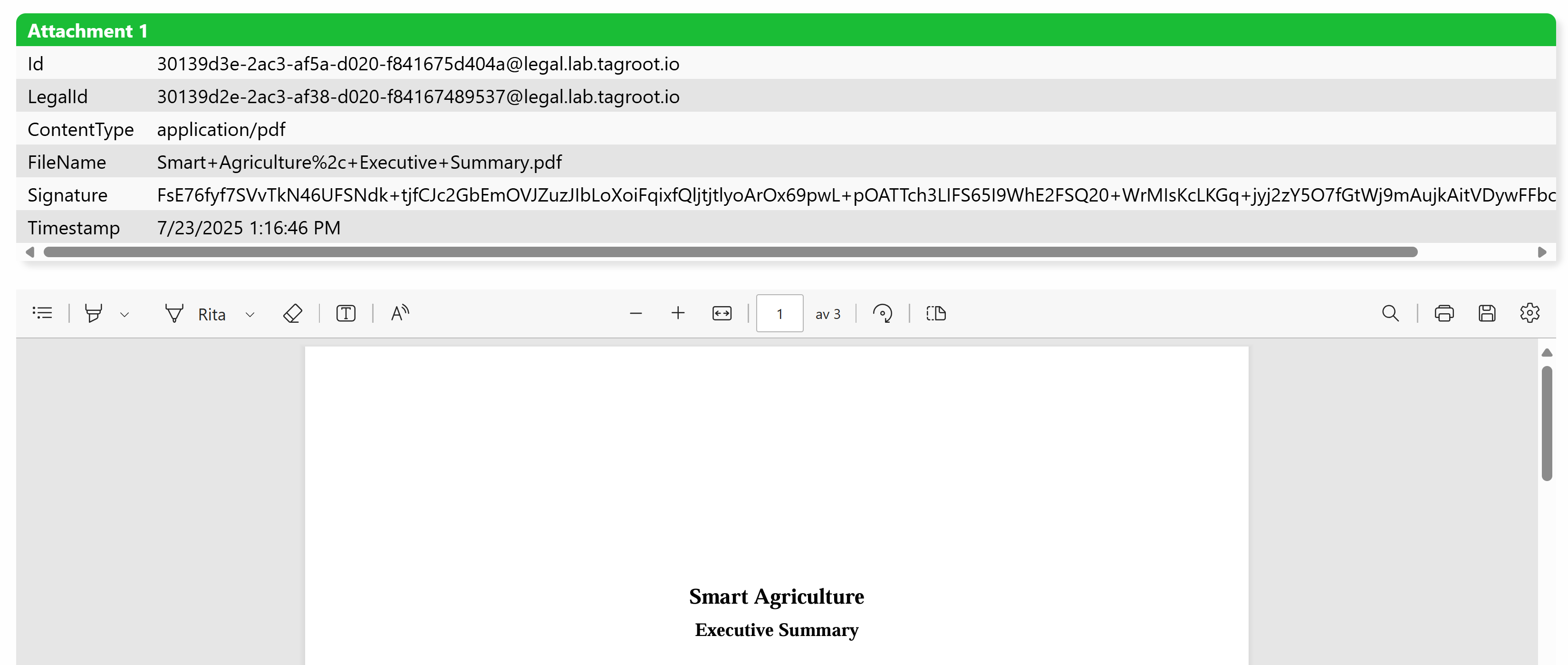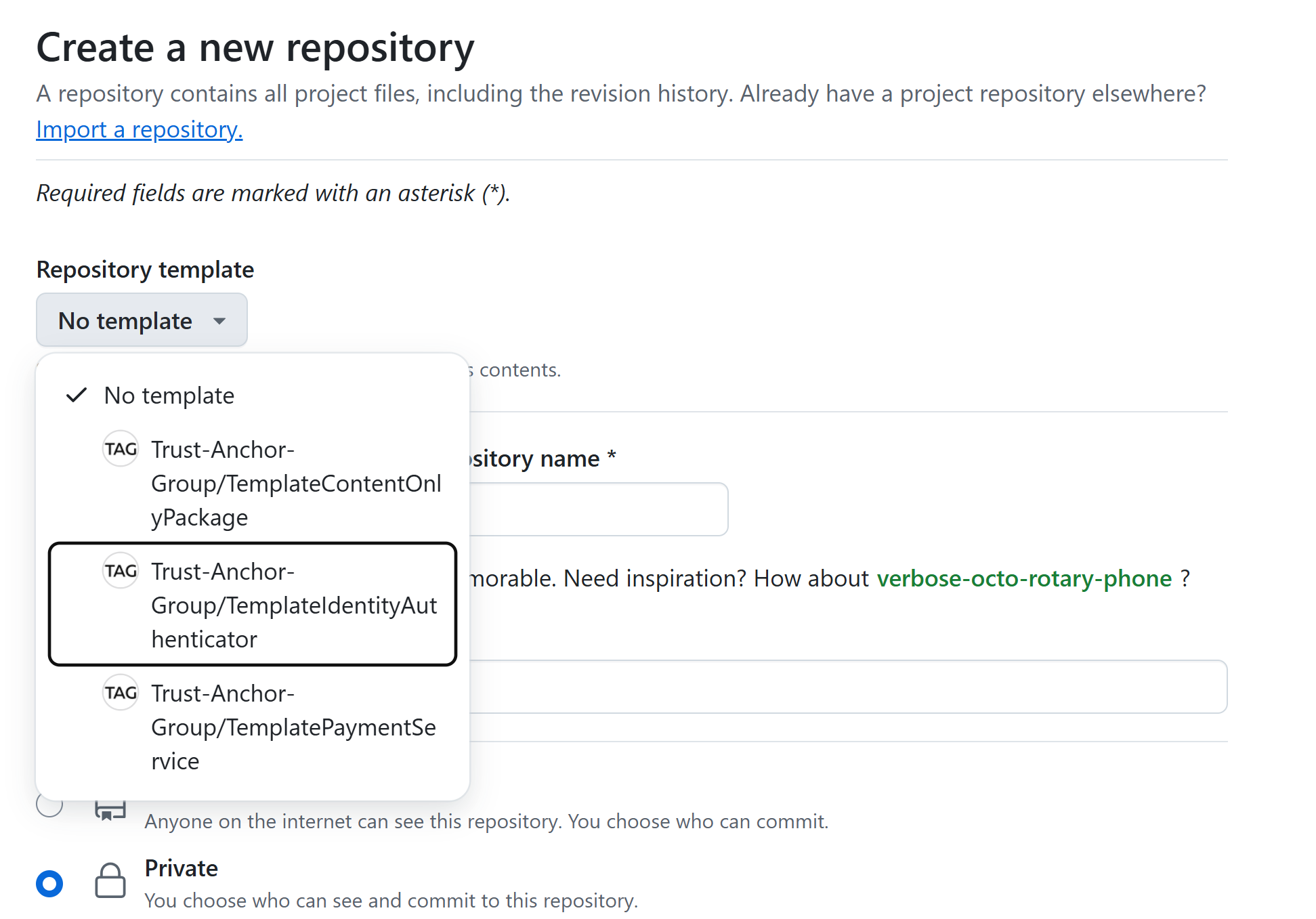Embedding PDF Documents in Markdown
It is now (from build 2025-07-24) possible to embed a PDF document into a Markdown page using a simple code block. The basic syntax is as follows:
```application/pdf:PDF Document
JVBERi0xLjcNCiW1tbW1DQoxIDAgb2JqDQo8PC9UeXBlL....
....
```
The code block is rendered to an embedded object in HTML (<embed/>), which, if the browser supports this tag, will display the PDF document directly embedded in the text.
This can be used for multiple purposes:
- Sharing and displaying documents in posts or documentation.
- Using PDF documents in KyC.
- Uploading PDF documents to smart contracts, for documentation purposes.
- etc.
Example:
This makes it seamless, for instance, to include PDF documents in idendity applications. It will be displayed embedded in the application for the operator:

Integrating Serpro into Neuron®-based services
You can use Serpro in Neuron®-based services, by installing the TAG.Serpro.package, available in the Packages page in the Admin menu, and use the examples provided in your own services. Serpro provides an identity application authenticator, that can be used to automate the approval of identity applications on the Neuron® where it is installed. You will need to provide a key when installing. Use the following public key:
| Some more information | |
|---|---|
| Package | TAG.Serpro.package |
| Installation key | 0WMoLBoAObn+SPgJ6Zfl6iJTxhnW8050o0sHba37z+51BUHjRm3dyL08qqQ+n4iTFDL6PYVOWeAA4bda1f2a8fb0d70921434eed848e39e7 |
| Configuring Service | /Serpro/Settings.md on the Neuron® on which the service is installed. |
| More information | <https://github.com/Trust-Anchor-Group/NeuronSerpro> |
Refactored KyC process: Service Collaboration
From build 2025-04-12, the KyC process to authenticate Identity Applications has been refactored to allow multiple Identity Authenticator services to collaborate to approve or reject an application. Apart from updates to the Neuron® itself, it also affects Identity Authenticator service packages, library nugets, and the Agent API, the focus of this article.
There are mainly two resources that have been updated:
The
ReadyForApprovalresource, now requires use of cryptographic key and signature to be called. The reason for this is that the call, which triggers the automated KyC process, can generate an attachment being added to the identity application, documenting which services have validated which parameters. For this to be permitted, the caller must provice the cryptographic key to use, for signing the attachment. The new call takes more arguments than the previous version, so any software making use of this resource must be updated as well.While refactoring the
ReadyForApprovalresource, theAddIdAttachmentresource was updated to include theLegalIdargument in the request signature. The call does not take any more arguments, so software using the JavaScript implementation do not need to be updated, as the request signature is calculated by the JavaScript library. But if software implements a custom HTTP REST interface, such software must be updated to reflect this new request signature calculation.
Other important changes related to KyC has also been performed. Now, the Neuron® and associated KyC-services support IDs that are defined using FULLNAME instead of FIRST, MIDDLE and LAST name property fields. If a FULLNAME is provided, and a contract references FIRST, MIDDLE and LAST, they will be extracted using the expected canonical approach. Likewise, if an ID is created using FIRST, MIDDLE and LAST, and a contract references FULLNAME, it will be constructed by joining FIRST, MIDDLE and LAST with a single space character as delimiter.
Identity Authenticator Service Template
A new open repository has been published that simplifies the creation of new identity authenticator services on the TAG Neuron® to customize KyC. The repository also contains instructions on how to implement such a service, what interfaces to use, and the different steps that need to be completed in order to create an installable package for the service, to distribute it in a Neuron® network.

For more information, see the TemplateIdentityAuthenticator repository on GitHub.
Posts tagged #kyc
No more posts with the given tag could be found. You can go back to the main view by selecting Home in the menu above.